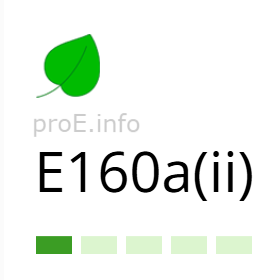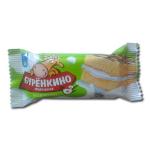
Other names for the additive (synonyms)
General Information
The food additive colorant E160a(ii) – natural beta-carotene extract is derived from natural sources such as carrots, palm oil, or algae. It belongs to the group of carotenoids (additive E160) and is a subtype of E160a. It is used in the food industry as a coloring agent to give products an orange hue.
Unlike synthetic beta-carotene (additive E160a(i)), the natural extract contains not only beta-carotene but also other carotenoids naturally present in the source material. This gives it a broader range of biological activity.
The extraction is carried out using organic solvents or mechanical methods followed by purification. The resulting extract may appear as an oily liquid or powder.
Characteristics of additive E160a(ii):
- Contains a mixture of carotenoids, with beta-carotene being predominant.
- The color varies from orange to reddish depending on the source.
- Naturally sourced, which is an advantage for labeling as a “natural colorant.”
Additive E160a(ii) is widely used in the production of juices, dairy products, baked goods, egg yolks (in poultry feed), dietary supplements, and vitamin complexes. It is also used as a source of provitamin A.
For more information on the properties and health effects of beta-carotene, see the general description of additives E160a and E160.
